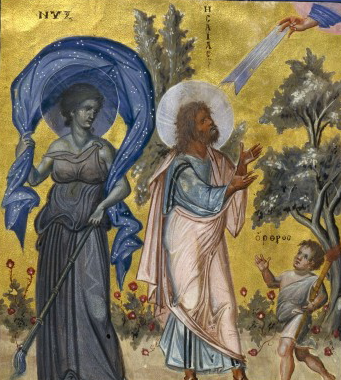“Purity is piety, honesty, and fear of the gods.”
– inscription on the walls of the Ptolemaic-era temple of Horus, Edfu, Egypt
“I must not fear. Fear is the mind-killer. Fear is the little-death that brings total obliteration. I will face my fear. I will permit it to pass over me and through me. And when it has gone past me I will turn to see fear’s path. When the fear has gone, there will be nothing. Only I will remain.”
– the Bene Gesserit Litany Against Fear, quoted by Frank Herbert in Dune
“I am not afraid of an army of lions led by a sheep. I am afraid of an army of sheep led by a lion.”
– Alexander III “the Great” of Makedon
Fear is an important concept for the modern-day Pagan who embraces the chthonic traditions of Thrace. To the Greeks, a titanismos was a Thracian battle-hymn so fierce, so filled with the terror of the sons and daughters of Nyx, that the Thracians’ enemies would simply turn and flee, if they weren’t frozen to the spot. And of Titanismos as the modern acknowledgment of our Titanic progenitors, our brother the Anomalous Thracian is fond of saying: “This is Titanismos. You should run.”
What does it really mean to have “fear of the gods,” as the Egyptian inscription instructs Horus’s priests to have? Can fear ever be a positive thing, particularly related to the idea being afraid of the Divine? What about other kinds of fear? Are they a force to be avoided, or, as the Litany quoted above suggests, could they become a weapon to use to our benefit?

